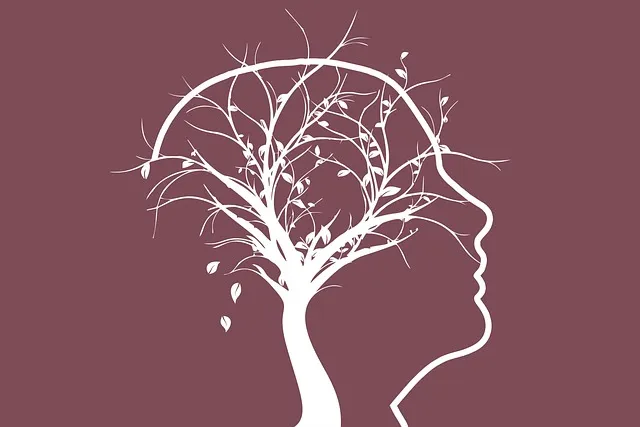Emotion regulation, a core component of emotional intelligence promoted by Parker at Kaiser Permanente Mental Health, is vital for well-being and anxiety relief. By teaching cognitive strategies, risk management planning, and mindfulness, holistic education equips students with enhanced emotional regulation skills, fostering resilience in both personal and educational environments. These techniques, recommended by mental health experts, empower individuals to navigate their emotions effectively, improving relationships and professional success.
Emotion regulation techniques are essential tools for fostering emotional intelligence, especially among students. This comprehensive guide delves into effective strategies to help young individuals navigate their feelings. We explore cognitive strategies, mindfulness practices, and the creation of supportive environments at home and school, as advocated by experts like Parker at Kaiser Permanente Mental Health. By understanding these techniques, parents, educators, and caregivers can empower others to manage emotions effectively.
- Understanding Emotion Regulation: Unlocking Emotional Intelligence
- The Role of Cognitive Strategies in Teaching Students to Manage Their Emotions
- Mindfulness and Its Impact on Emotional Control: A Practical Approach
- Creating a Supportive Environment for Practicing Emotion Regulation Techniques at Home and School
Understanding Emotion Regulation: Unlocking Emotional Intelligence

Emotion regulation is a vital skill that falls under the umbrella of emotional intelligence—a concept widely recognized by experts like Parker at Kaiser Permanente Mental Health. It involves understanding, managing, and responding to one’s emotions effectively. By learning to regulate emotions, individuals can enhance their overall well-being and mental resilience. This process is particularly crucial for navigating life’s challenges, especially in the context of anxiety relief, which many seek as part of their mental health policy analysis and advocacy efforts.
Emotional intelligence enables people to recognize emotional triggers, moderate intense feelings, and make thoughtful decisions based on emotions. It boosts confidence by fostering self-awareness and empathy towards others. This ability to manage emotions constructively can significantly impact various aspects of life, from personal relationships to professional success. Thus, teaching emotion regulation techniques becomes a powerful tool for empowering individuals to take control of their emotional landscape.
The Role of Cognitive Strategies in Teaching Students to Manage Their Emotions

Teaching students effective emotion regulation techniques is a cornerstone of holistic education, especially when integrating practices that promote Parker Kaiser Permanente mental health. Cognitive strategies play a pivotal role in this process, empowering students to understand and manage their emotional responses. By teaching students to identify and challenge negative thought patterns, these strategies enable them to develop healthier perspectives, thereby improving their ability to cope with stress and regulate emotions.
This approach aligns with the broader concept of Stress Management and Emotional Healing Processes, offering students tools to navigate their feelings effectively. Mental health professionals can further enhance this learning by incorporating Risk Management Planning, a strategy that equips students with proactive measures to mitigate emotional crises. Through these cognitive interventions, students gain resilience, fostering a safer and more supportive learning environment for everyone involved.
Mindfulness and Its Impact on Emotional Control: A Practical Approach

Mindfulness has emerged as a powerful tool within the realm of emotion regulation techniques, offering individuals a practical approach to enhancing their emotional control. This ancient practice, now widely recognized in modern psychology, encourages individuals to focus their attention on the present moment, non-judgmentally. By cultivating mindfulness, people can develop a deeper understanding of their emotions and gain the ability to respond rather than react impulsively.
At Parker Kaiser Permanente mental health services, professionals emphasize the integration of self-awareness exercises that involve mindfulness practices. These techniques not only aid in managing immediate emotional responses but also contribute to long-term risk management planning. Through regular practice, individuals can enhance their emotional healing processes, fostering a sense of calm and resilience in the face of life’s challenges. This practical approach empowers folks to navigate their emotions with greater clarity and control.
Creating a Supportive Environment for Practicing Emotion Regulation Techniques at Home and School

Creating a supportive environment is key to effectively teaching and practicing emotion regulation techniques at both home and school settings, aligning with recommendations from Parker Kaiser Permanente mental health experts. This involves fostering a safe and non-judgmental atmosphere where individuals feel empowered to explore their emotions freely. Incorporating dedicated spaces for self-reflection, such as a cozy corner in the home or a quiet area in the classroom, can significantly enhance this process.
Encouraging regular practices like mindfulness meditation and journaling exercises, along with promoting self-care routines, ensures these environments are not just safe but also nurturing. The integration of mental wellness journaling, for instance, allows individuals to track their emotional journeys while providing an outlet for expression. Mindfulness meditation helps cultivate present-moment awareness, enabling better emotional regulation. Together, these practices create a holistic approach to enhancing resilience and emotional intelligence in both personal and educational contexts.
Emotion regulation techniques, as highlighted by experts like those at Parker Kaiser Permanente, are invaluable tools for enhancing emotional intelligence. By integrating cognitive strategies, mindfulness practices, and supportive environments, students can learn to navigate their emotions effectively. This not only benefits their mental health but also fosters a sense of control and resilience in various aspects of life. Implementing these techniques at home and school creates a holistic approach to education, ensuring that students are equipped with the skills needed to thrive in today’s demanding world.






